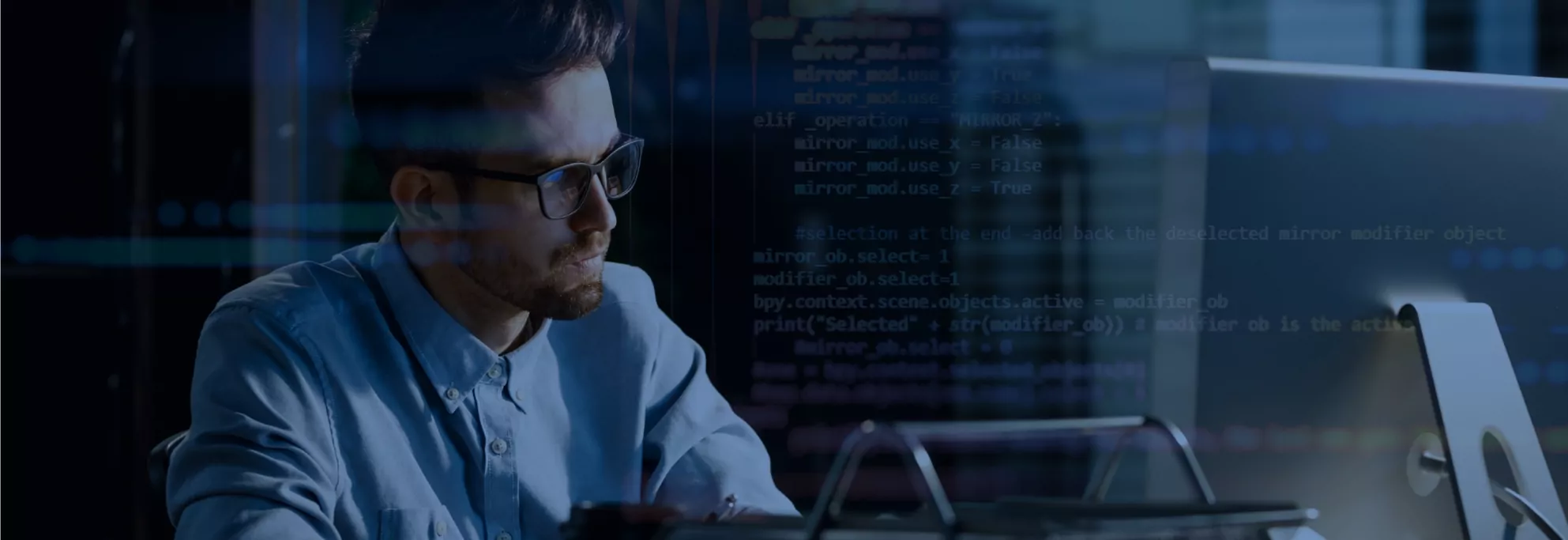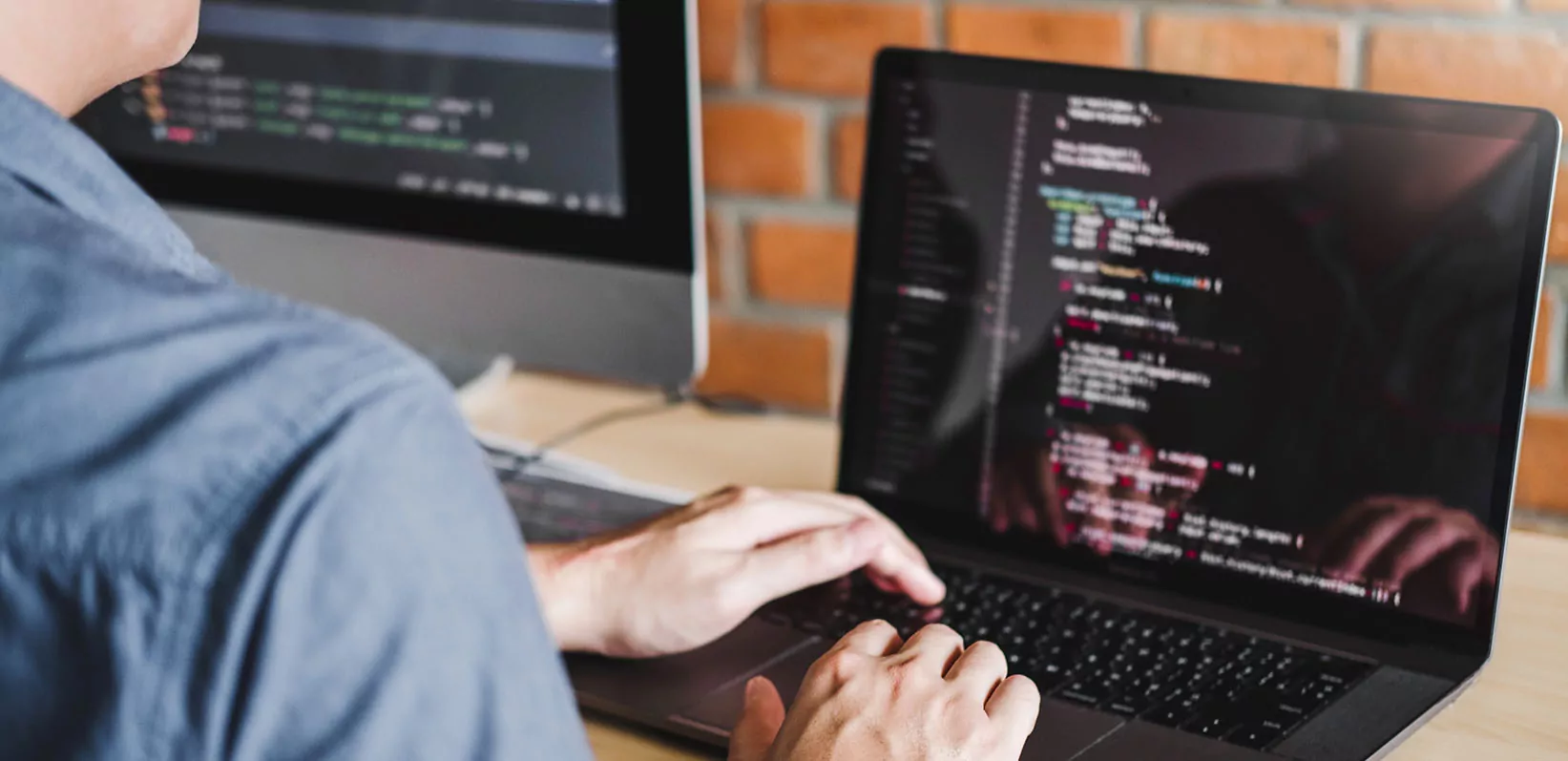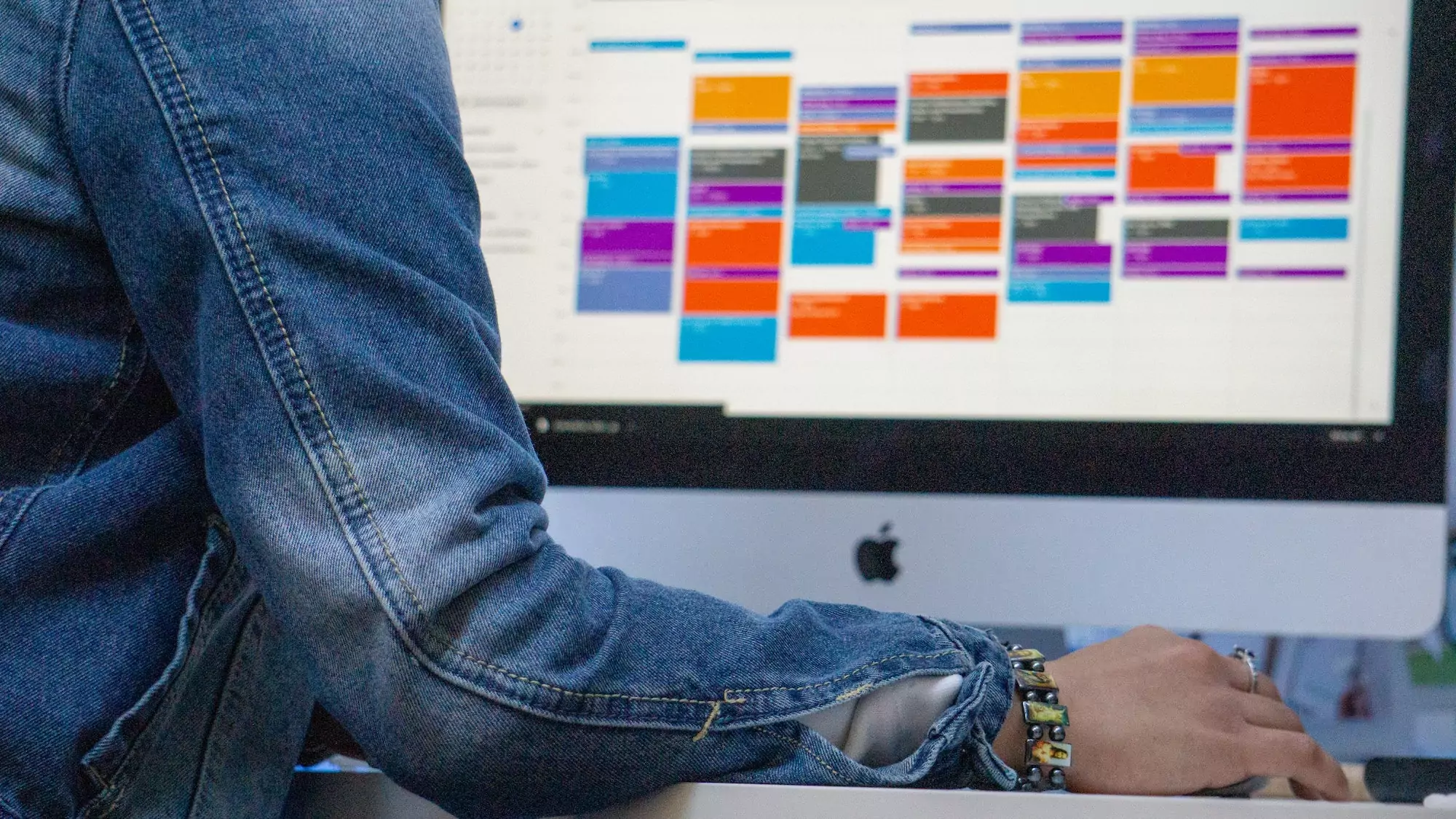Although there is an action movie called Source Code, featuring Jake Gyllenhaal, in software development, source code ownership can turn into a drama if you don’t deal with it in advance. So, dear business owner, here are a few tips for you.
What is source code?
Just a quick reminder. Source code is the version of software in its original form – the way it was written by developers in a certain programming language. It contains instructions that are later translated into machine language. It can also include developers’ comments that will help others who work with the code to understand it. It is usually stored in a source code repository.
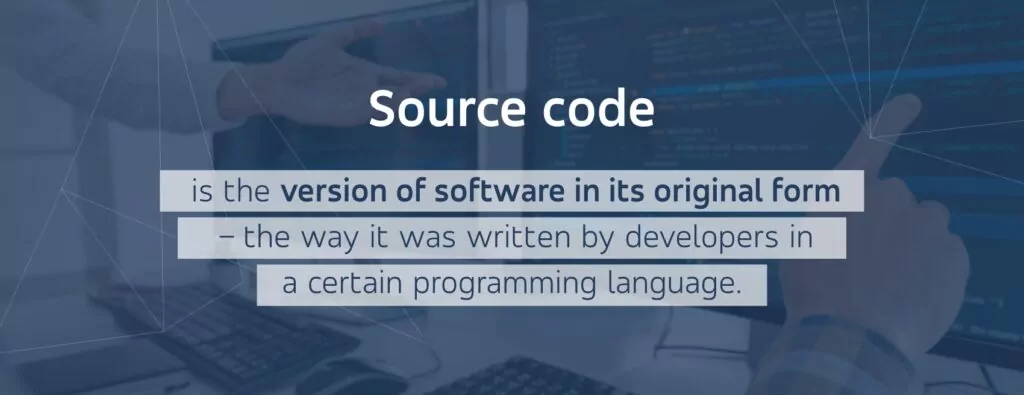
Who owns source code
You pay for the software development, so you own source code, right?
Actually, it isn’t as simple as it might seem.
In fact, who owns source code is a legal question and relies on several factors, such as local and international laws, terms of your contract (or contract of employment if you develop your software in-house), project scope, and any other documentation.
If you haven’t specified it beforehand, most probably your source code isn’t legally yours. It belongs to the author, namely a software developer that has written it. Still, there might be some presumptions to claim it – but the best idea would be to get a lawyer then. I know we are muddying the water here, but intricacies of intellectual property and copyright (not to mention patent law) can be hard to follow to unequivocally determine the ownership and each case should be considered individually.
What do you pay for?
So here are two hints that will help you determine who is the owner of source code.
First, your contract with a software development agency or freelance devs should specify what you pay for:
- A license for a finished product (app, system, etc.) that they had to develop – then the source code is probably developers’ intellectual property.
- A product to be developed, ideally explicitly saying that it will be your intellectual property – then you should be given source code at the end.
Yet another indicator might be the price you have to pay. Usually, before building your application you get quotes from different software companies. Keep in mind that the latter solution usually costs more. But it’s definitely a price worth paying. Why? The answer you’ll find below.
Potential risks of not owning your source code
Paying for the finished product only, without copyrights, poses some serious threats, such as:
- You’re tied to one software development company. The tiniest modifications, bug fixing, or upgrades have to go in their hands. This is particularly tricky, cos you become fully dependent on their current pricing and availability. Not to mention the situation when the company goes out of business.
- Raising funds for further development or selling your product can become complicated since you don’t own its source code, the final product only.
- When a software development company or developers own the source code, they can use it again, in a different project for other customers, which can be your direct competition. As a result, someone can build a similar application in no time.
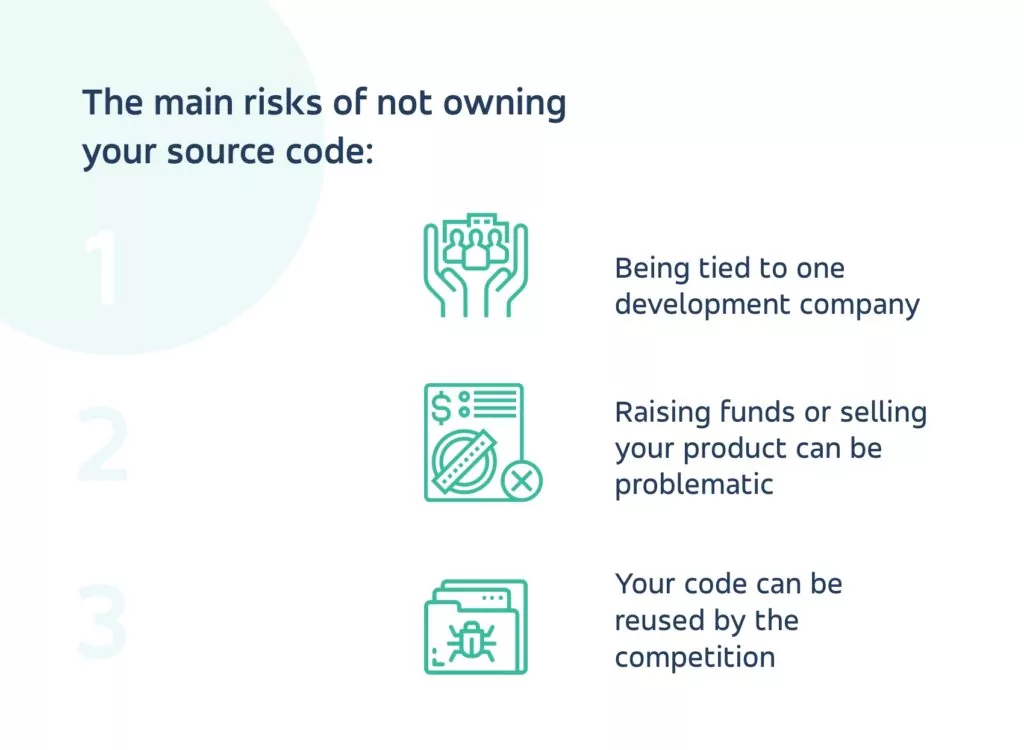
How it works in NeuroSYS
We will not beat around the bush and get to the point. Working with us, you’re the owner of your digital product source code. Even after a development trial, source code, as well as documentation, outlines, or mock-ups stay with you. You’ve got all rights to use them freely and develop your product further with whomever you wish to. However, it isn’t a run-of-the-mill market practice.
So, answering the initial question – who should own source code – the only possible answer for us is you, you only. We include such a clause in our contracts. We don’t want to tie you to us – as well as work with clients, who don’t want to work with us but are forced to.
